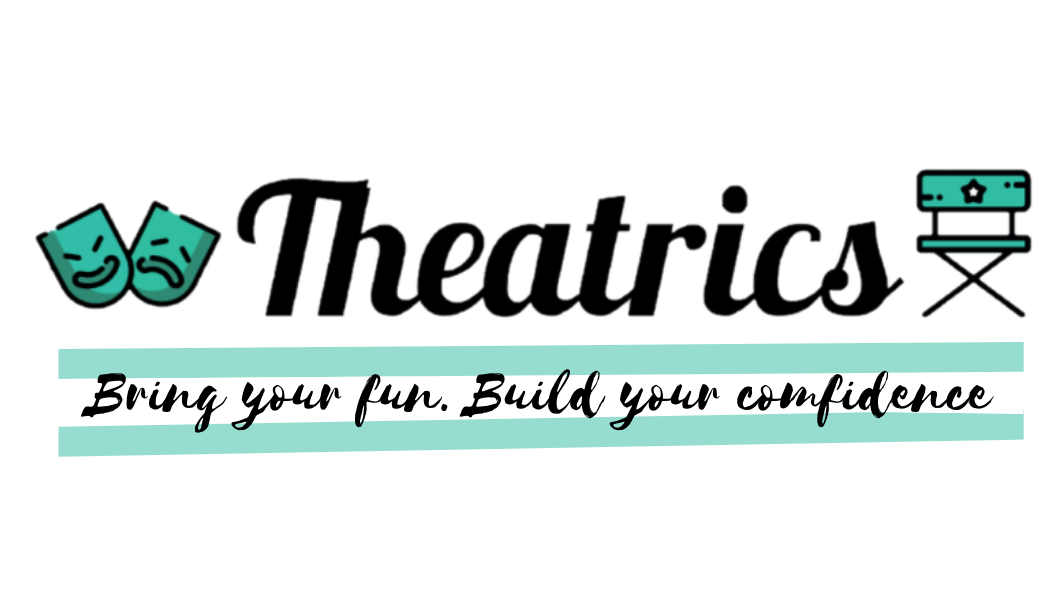Why Drama?
Primary and post-primary children are at very different stages of their development. Our classes cater to the different needs of each age group.
Read about how drama positively affects development in primary and post-primary settings…
Primary School:
Emotional Development
Imagination
Imagination encourages us to be flexible thinkers. Through interactive story telling, improvisation and imagination games, children in Theatrics lessons encourage children to be flexible thinkers and problem solvers.
Empathy
By learning to identify and understand different emotions (see emotional development), Theatrics lessons enhance the ability to relate to others and how they are feeling.
Confidence
Self-confidence is hugely important in teens, young adults and adults. Encouraging children to be confident in themselves will serve as a tool in later life to combat difficult situations, whether that be an emotional distress or a professional presentation.

Speech Development
Language
Our days revolve around the conversations we have, and the relationships built through these conversations. With tongue twisters, verse speaking, and silly re-call games, one of Theatrics main focuses is clarity of speech and diction. Verse speaking also expands vocabularly – this gives children access to new ways of communicating.
Communication
As stated in the speech and language section, verse speaking develops the child’s vocabulary, and other activities focus on clarity and diction. This, coupled with the increased understanding of emotions and feelings (see emotional development) aids the child in communicating effectively with their language and expression.
Memory
Theatrics provides training for graded LAMDA examinations. The focus of these is verse speaking or prose speaking, which requires poems or sections of books to be memorised. The amount to be memorised increases as the child gets older, fostering the ability to retain information and increasing this skill year on year.
Physical Development
Being active is important to build a healthy lifestyle, both for physical and mental health. By showing young children that movement is fun, Theatrics encourages a long-term healthier lifestyle.
Movement
Theatrics lessons include games designed to encourage movement and physical activity, as well as help in the development of hand-eye co-ordination and fine motor skills.
Balance
Balance is integral to the physical development of children. Theatrics lessons include games and activities designed to connect pupils to their body and consider their movement in different ways.
Post-primary
Teenagers require different sets of skills to younger children. There are many challenging situations that teenagers may find themselves in:
school presentations
peer pressure
tensions between friends
first relationships
Navigating the world as a teenager is an almost impossible feat. By valuing our pupils, Theatrics provides a safe space for teenagers to process and learn more about themselves. As well as this, teens will gain the ability to speak out with confidence, which is invaluable in their educational, social and professional lives.
Self-confidence
Being confident in yourself can quite simply, change the trajectory of your life. Seeing yourself in a positive light and believing you are capable, enables you to achieve and pursue what you want – whether that be a class presentation, a language oral exam, achieving your PCertLam in Speech and Drama or getting into University for a competitive course. Theatrics is passionate about encouraging teenagers to believe in themselves, and be confident in their abilities. This is partly relational and partly grounded in the advancement through LAMDA examinations year on year. Having performance in your routine week to week takes the fear out of speaking in front of people.
Self-worth
A concern for teenagers and young adults is the increasing levels of poor mental health, depression and anxiety. Self-worth is an invaluable tool in combatting these issues. By building relationships over time and intentionally validating and encouraging their abilities, Theatrics shows each and every teenager that they are worth it.
Emotional Processing
Living as a teenager is emotional. There are hormonal changes, the constant learning about yourself and others and the building pressure of public examinations. Those three things are only the beginning! By pursuing LAMDA examinations and completing acting grades, you must confront feelings and incorporate them into performance. While this can be difficult, it builds the necessary skill of recognising, identifying and processing emotions.
Memory
Retention of information is necessary for public examinations, further education courses/University degrees (if these are something the teenager wants to pursue) and many careers. By completing LAMDA graded examinations, prose, poetry and monologues are learnt off by heart. This increases the ability to retain large chunks of information.





